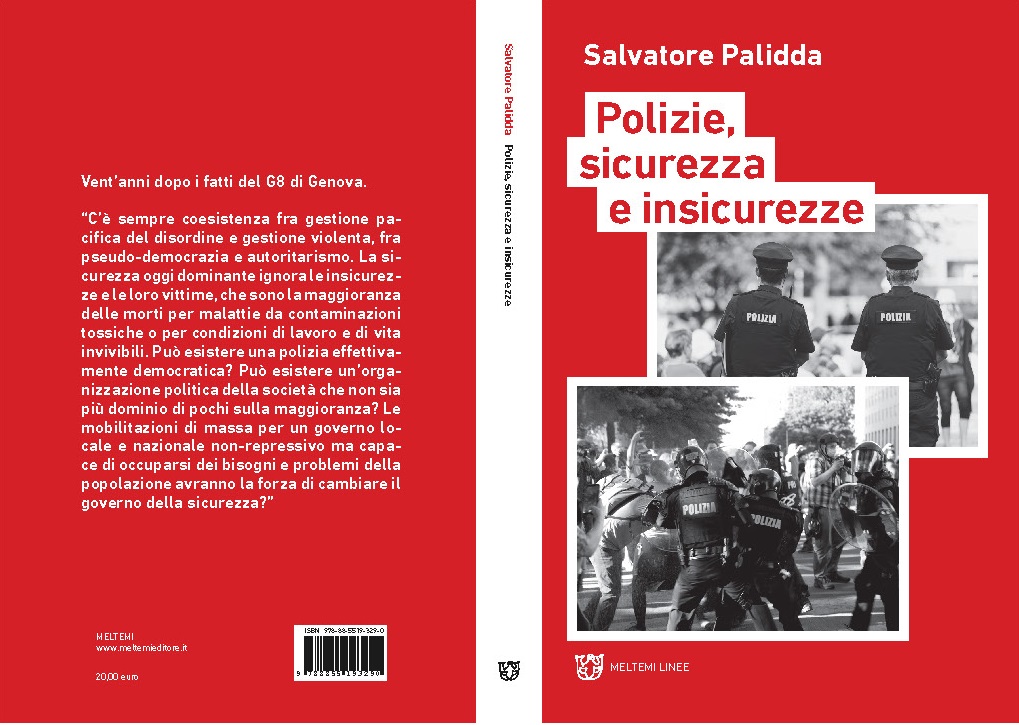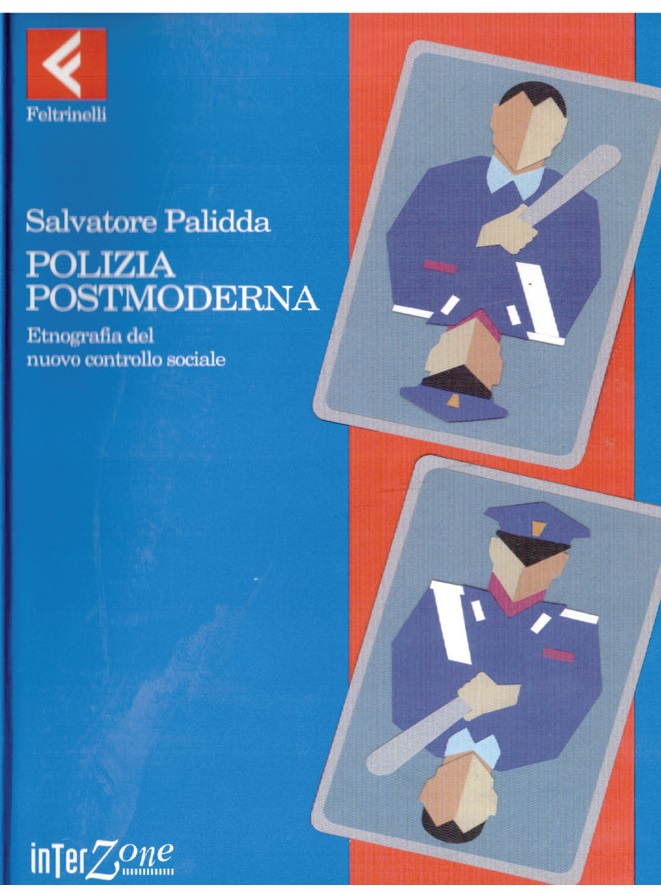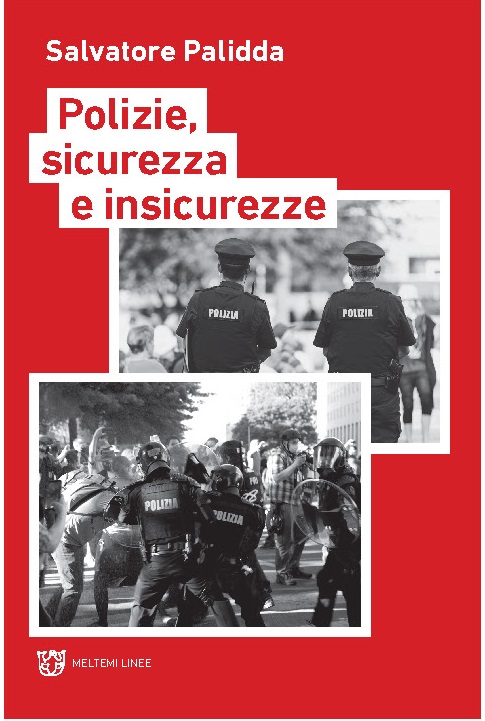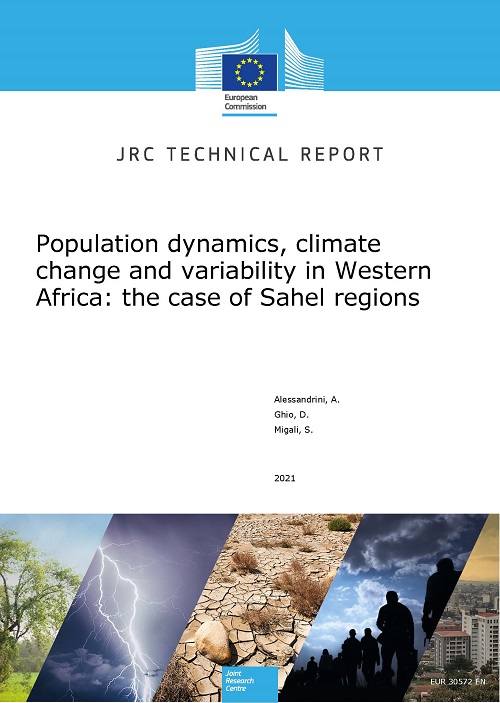Italy: Policing of marginalised populations examined in new book
Topic
Country/Region
25 February 2021
A new book by Professor Salvatore Palidda - 'Policing, security and insecurity' - is due to published as the 20-year anniversary of the Genoa G8 (19-21 July 2001), an example of brutal police repression of social movements during a large international demonstration, approaches.
Support our work: become a Friend of Statewatch from as little as £1/€1 per month.

Palidda theorises the perpetual coexistence of peaceful and violent operative modes of policing, with the latter reserved for outsiders (migrants, Roma and marginalised people, subversives) in the context of a sharp contrast between illegalities that are tolerated and others that are deemed intolerable.
The backdrop is provided by a security-minded shift promoted by zealous citizens, security entrepreneurs (including some politicians) and law enforcement professionals, alongside a great deal of autonomy that the top police echelons enjoy and politicians refrain from challenging.
Palidda asks:
"Can a democratic police exist? This is a question that I am often asked by many sincere democrats. I answer: can an effectively democratic State exist as long as domination by the few at the expense of the many persists?"
The text that follows is a translation (by Statewatch) of the presentation of the book Polizie, sicurezza e insicurezze (Police, security and insecurity) by Salvatore Palidda. The original presentation, in Italian, is available here (pdf).
Presentation of Polizie sicurezza insicurezze, Meltemi, January 2021 (by Salvatore Palidda)
On the 20th anniversary of the events of the Genoa G8
I have been involved in studies on the police since 1990, after spending around ten years studying military affairs (for my PhD thesis). Since then, I have often engaged in research about security and the victims of insecurities.
 The book Polizia postmoderna, published in 2000, had as its cover a drawing by Serena Giordano that depicted a police officer and a zealous citizen in inverted roles. My view is that this image reflected the substance of the book very well, namely the rise of a “securitarianism” that was embodied primarily by an emerging actor: the noisy minority, meaning citizens who are “zealous and security entrepreneurs who, supported by the media and police officials interested in a swift career, were portrayed as being a majority of the population that was terrified by the fear of migrants, Roma and marginalised people and demanded more police and more penal punishment against the new “damned of the city”.
The book Polizia postmoderna, published in 2000, had as its cover a drawing by Serena Giordano that depicted a police officer and a zealous citizen in inverted roles. My view is that this image reflected the substance of the book very well, namely the rise of a “securitarianism” that was embodied primarily by an emerging actor: the noisy minority, meaning citizens who are “zealous and security entrepreneurs who, supported by the media and police officials interested in a swift career, were portrayed as being a majority of the population that was terrified by the fear of migrants, Roma and marginalised people and demanded more police and more penal punishment against the new “damned of the city”.
 The cover of the book Polizie sicurezza insicurezze, written 20 years later, features two photographs that show the peaceful police in one case and a violent police in the other, as a summary of my main thesis, that is, the perpetual coexistence between these two operative modes for police forces.
The cover of the book Polizie sicurezza insicurezze, written 20 years later, features two photographs that show the peaceful police in one case and a violent police in the other, as a summary of my main thesis, that is, the perpetual coexistence between these two operative modes for police forces.
Over 20 years, I have collected elements, testimonies, documents and data to better understand the changes that police forces in Italy were undergoing, without disregarding the situation in other countries, primarily in France, which I have known well for more than 40 years, and in the United States.
In this new volume, I have tried to describe the current situation of Italian police forces, and particularly their practices, that I had begun to outline in Polizia postmoderna but which are now more clearly visible and which I summarise as a “perpetual coexistence of the peaceful and violent management of the government of security”. It is not by chance that Michel Foucault wrote that: “The police is a permanent coup d’ état”. This is an operative modality that has always been present. However, it appears to be more evident today because a “securitarian spirit” pervades a sizeable part of the population and it translates into the militance of zealous citizens, not just among the voters of right-wing parties, but also among those of the former left. It is not by chance that an earlier book was entitled Razzismo democratico (2009) [the English edition (Ashgate, 2011) is called “Racial Criminalization of Migrants in the 21st Century”], which is the expression of a democracy which, today, is marked by the prevalence of thanatopolitics, leaving people to die, rather than by biopolitics (letting people live to better exploit and subjugate dominated people), that is, a heterogenesis of democracy.
Hence, in this new book, I have sought to gather all the information and useful data to understand what law enforcement forces have become in this neoliberal context of “more market and less state” that translates into the police being placed at the service, not just of its higher echelons and political power, but also of those actors that are most influential at the local level. This is where it becomes possible to understand the importance of the underground economies in Italy that are responsible for over 32% of the GNP and for around eight million workers who sway between the precariat, semi-precariat and fully illegal employment. This astounding level of illegal activity would be unthinkable and impossible without tolerance and connivance by police forces, local and national authorities regarding the multiplicity of illegal practices enacted by these economies’ social actors (irregularity, tax fraud and all those activities that cause a risk of health or environmental disasters). The victims of such crimes are reduced to a situation in which it is impossible to defend themselves, precisely because they lack protections and, instead, they are often persecuted if they dare to rebel. As is well known, the “people” of tolerated illegal practices are worth around ten million votes and there isn’t any party that dares to go against this electorate and against the sacredness of the economy. It is also obvious that by economy, what is increasingly meant is the tight intertwining between the lawful, unlawful and even criminal economy (this also applies to large parastatal businesses that feed off subcontracting, fake cooperatives and Mafia-owned businesses).
However, the pervasive mass distraction that has asserted itself since the 1990s singles out immigrants, Roma people and the disenfranchised as the enemies of society, and police forces do not escape this discourse. So-called fears are even attributed to these supposed enemies’ mere presence, all the more so if they try to rebel against conditions of neo-slavery. The police forces - apart from officers who are neither fascist nor racist and sometimes elude conditioning from above - act as if to show that violent treatment is only reserved to “outsiders”, to the marginalised, undesirables and subversives. There is an obvious likeness between the attitudes and behaviours of foremen, small bosses and lots of ordinary citizens who exploit weaker workers (immigrant and Italian) and those of police officers who sometimes end up in the crime reports pages for acts of violence, corruption, misappropriation and other crimes suffered by immigrants, Roma people and disenfranchised people more generally (the latest case of the Piacenza [carabinieri] station speaks volumes).[1]
Regarding the relationship between police forces and political power, it seems to me that since 1945 the Italian case has been marked by a peculiar autonomy granted to the higher echelons of police forces in exchange for loyalty to the political power, which contextually entailed the concession of certain privileges. After the end of the so-called “first republic”, since 1990, this relationship appears to have evolved towards a further autonomisation of police forces, also because their political backers were weakened, unstable and less credible (the head of State [President] oversees, but largely appears absent). This means that the complete lack of political control over the police and their practices further intensifies. Politicians do not dare to “stick their noses” into the police forces’ affairs and almost the totality of MPs does not know anything about how they function and, generally speaking, an obsequious attitude usually prevails. Hence, the privileges enjoyed by the police are unquestionably confirmed: first of all, the right to impunity, a fact that was shown in an astounding way in the case of officers responsible for acts of torture and violence during the events surrounding the Genoa G8 and other cases as well, which even ended up leading to promotions. The strong autonomy of police forces also rules out their most elementary democratic rationalisation, which means that they continue to have an entirely absurd layout that, among other things, leads to a waste of forces and means, duplication and overlapping structures and tasks, and often a considerable excess of personnel. If Italian citizens could make the criteria and logics of neoliberal productivity imposed upon all sectors apply to police forces, we would witness a veritable institutional earthquake. However, the point is that police forces are granted self-management because it makes it possible to apply those criteria and logics to officers that are not used for their top echelons. However, the latter seek to impose a productivity upon personnel whose purpose is the repressive management of intolerable illegalities, those that concern immigrants, Roma people, marginalised people and subversives (for example, by improving figures, that is, more arrests, more charges brought, more controls).
The book analyses the “productivity” of Italian police forces and shows the very considerable decrease of all crimes and particularly the most serious ones, despite a context of perpetual instigation to repression and illegality. Hence, one observes that crimes have greatly decreased at the same time as immigrants have gone from being less than 900,000 in 1990 to around six million in 2020, which may be read as an increase in immigrants causing criminal activity to decrease. Moreover, it can be observed that the decrease in crimes has not resulted from an exasperation of zero tolerance approaches and not even from new technological contraptions like video-surveillance, algorithms and “postmodern” controls. Instead, it is likely that it may have resulted from the very important role taken up by Catholic and lay social volunteering activities that make up - as liberalism wishes – for the dismantling of social services that have always been lacking in Italy.
Can a democratic police exist? This is a question that I am often asked by many sincere democrats. I answer: can an effectively democratic State exist as long as domination by the few at the expense of the many persists?
[1] A case that led to six arrests and the temporary closure of a carabinieri station amid allegations of “drug trafficking and dealing, dealing in stolen goods, extortion, unlawful arrest, torture, grievous bodily harm, falsehood by a public officer in public acts, arbitrary personal searches and inspections, serious private violence and fraud against the State”. AGI, “Cosa succedeva nella caserma dei carabinieri di Piacenza?”, 23.6.2020, https://www.agi.it/cronaca/news/2020-07-23/caserma-carabinieri-piacenza-gomorra-9235911/
Our work is only possible with your support.
Become a Friend of Statewatch from as little as £1/€1 per month.
Spotted an error? If you've spotted a problem with this page, just click once to let us know.

